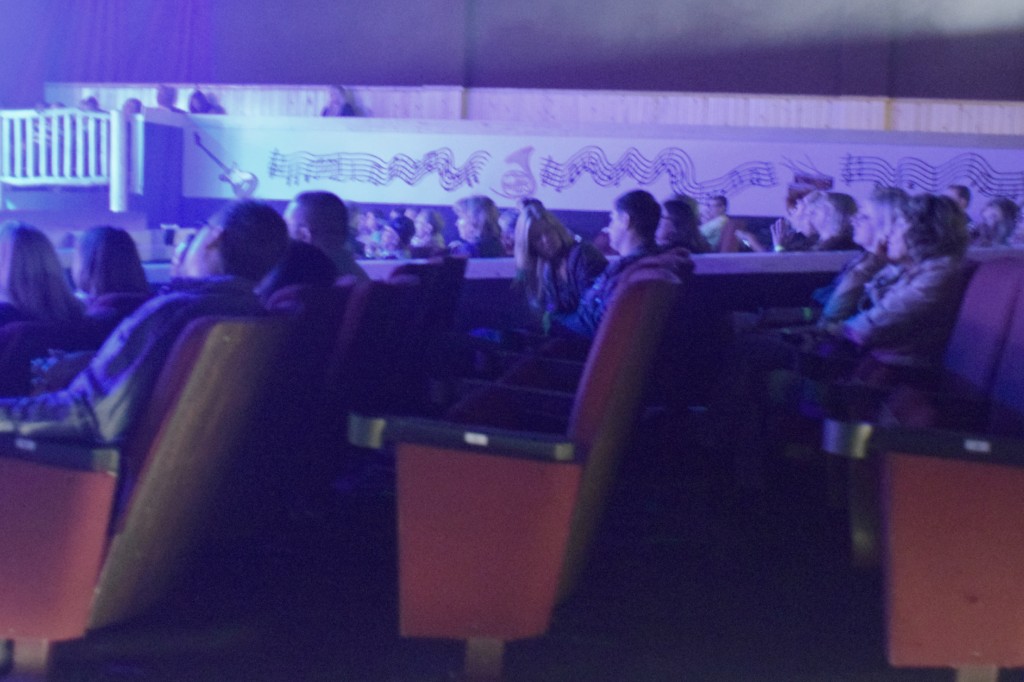

#LIVE ENTERTAINMENT EXPENSE BAR TV#
Wining and dining clients is a ‘no’ĭespite what’s often portrayed on films and TV – you can’t write off the cost of entertaining clients in a ‘wining and dining’ sense. The word ‘entertainment’ can throw up some confusion when it comes to allowable business expenses (especially given what we’ve just talked about in the previous section). She’s also in her local town, so could technically have had lunch at home before or after meeting her client. Lucy can’t claim this as an allowable expense as the meeting is taking place in a regular place of work for her. One day, she decides to meet a client at one of her regular haunts for lunch to discuss a new project.


Here are two examples explaining how these two definitions affect food and drink expenses: Food and drink you buy on the way to, or during a day at a temporary place of work can be claimed (within reason).Ī normal place of work … is the: “place at which an employee works is a permanent workplace if he or she attends it regularly for the performance of the duties of the employment.”Ī temporary place of work… is classed as such: “if an employee goes there only to perform a task of limited duration or for a temporary purpose.” This is because any food or drinks you buy on the way to, and during a day at your normal place of work cannot be claimed as a business expense. It’s important to understand the difference between HMRC’s definitions for a ‘normal place of work’ and ‘temporary place of work’. The difference between a normal place of work and temporary place of work Any food and drink expenses you incur while travelling for business must be reasonable, and you should be able to prove this, too. If you decide to indulge at a high-end restaurant three times a week on various business trips, HMRC will definitely not deem this acceptable. There are limits to what you can claim, even when travelling for workĪs with all HMRC allowable expenses, there are limits to what you can claim as part of your business trip subsistence costs. It’s extra to your day-to-day living costs and quite often costs more than you’d normally pay. This is because it classes this kind of expenditure as ‘wholly and exclusively’ for business purposes.Įven though you ‘need food and drink to survive’, HMRC is happy in the knowledge that you’re only buying that particular meal in that particular place because you’re on a business trip. HMRC’s rules around subsistence do mean you can claim food and drink bought on a business trip as an expense. What travel has to do with it: why you can claim for food on a business trip (within reason) Because we kind of get a lot of personal benefit from that too (aka: not perishing). So the costs associated with what we eat and drink in our normal day-to-day working lives can’t be classed as ‘wholly and exclusively’ for business. This basically says that if something is necessary for reasons that aren’t work related, it can’t be claimed as an expense – even if that thing also benefits you in a business sense.

To understand this it helps to look at HMRC’s ‘dual purpose’ rule. HMRC’s definition of subsistence doesn’t include the food and drink you consume day in, day out while working. Eating to live: why you can’t claim for everything you eat while working ‘Subsistence’ is the term HMRC gives to any food and drink expenses that arise out of necessity, from a business perspective (this bit’s important – more on it below). The things you can claim for fit under three overarching categories: Mainly: you can’t claim for anything and everything eaten or drunk while working. But as anybody who’s been through this process knows, there are a fair few HMRC rules to get your head around first. When you’re self-employed there are certain situations where you can claim food and drink as a business expense. Food & drink expenses: here’s what you can actually claim


 0 kommentar(er)
0 kommentar(er)
